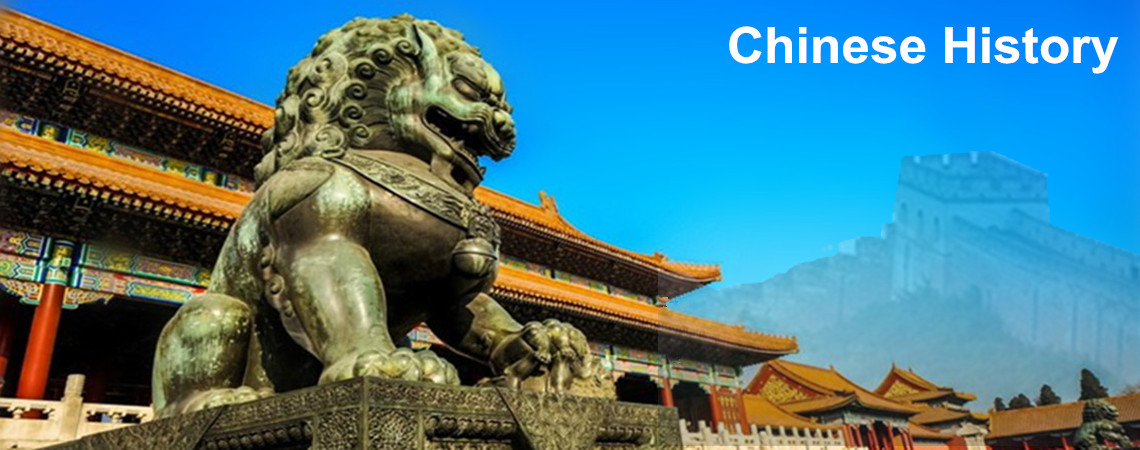
The founding of the Chinese Communist Party
Early in 1920 Li Dazhao and Chen Duxiu started to work for the founding of the Chinese Communist Party. In March of the same year, representatives of the Communist International led by Lenin came to China. They discussed the establishment of Communist organizations in China with Li Dazhao and Chen Duxiu in Beijing and Shanghai. On the May the First International Labour Day that year, celebrations led by communist intellectuals were held in Beijing and Shanghai. They were important manifestations of Marxism integrating with the Chinese worker movement. Starting from the summer of 1920, early Commu-nist groups were successively set up in Shanghai , Beijing , Wuhan , Jinan , Changsha and Guangzhou , as well as among Chinese students in Japan and France.
In August 1920, China ‘s first Communist group was set up in Shanghai and Chen Duxiu was elected its secretary. The group played a leading and liaison role for the early Communist groups in other places in China. The Beijing Communist branch was set up in October1920 with Li Dazhao as secretary. It also contributed greatly to the preparatory work for the founding of the Chinese Communist Party. Li kept in close touch with Chen Duxiu and sent comrades to Jinan to help set up a Party group there. The establishment of the Wuhan bran-ch in autumn 1920 was directly helped by the Party organization in Shanghai, and was led by Dong Biwu (1886-1975), Chen Tanqiu and Bao Huiseng. In the winter of 1920, the Jinan group came into being. Activities for the founding of the Communist group in Changsha were led by Mao Zedong (1893-1976). He had exchanged opinions with Cai Hesen (1895-1931) who was then studying in France , and had made a clear explanation for the necessity of founding the Party and the Party’s guiding ideology. The New People’s Society they set up in Changsha in 1918 played an important role in the founding of the Communist organization in Hunan. The Guangzhou Communist group, set up in the autumn of 1920, included many anarchists in the begin-ning. In March 1921 they withdrew from it. Chen Duxiu and some others helped Tan Pingshan and Chen Gongbo reorganize the Guangzhou Communist group. The Chinese Students’ Communist Group in Japan was formed by Shi Cuntong and Zhou Fohai, both of whom had joined the Communist group in Shanghai during their home leave. The student Communist group in Paris was organized and set up in the spring of 1921, composed mainly of Zhang Shenfu and Zhou Enlai. Zhang went to Paris after he had joined in the Party-founding activities in China. Later he admitted many others into the group.
These early Communist groups did much work to disseminate Marxism and organized members to go deep among the workers, thus further promoting the integration of the Chinese workers’ movement with Marxism. The Shanghai Communist group took New Youth as its open theoretic publication and put out an inner-Party monthly, Com-munist Party. Marxist study societies were set up in many places, and popular publications for workers were put out, such as Labour World in Shanghai , Labourer’s Voice in Beijing , and Laboures in Guangzhou. Workers’ night schools, new-type trade unions and workers’ clubs and the Socialist Youth League were set up. The appearance of the local Communist groups and their effective work prepared for the conven-tion of the First National Congress of the Chinese Communist Party.
On July 23, 1921 , the Chinese Communist Party held its First National Congress in Shanghai. Thirteen delegates attended. They were Mao Zedong, He Shuheng, Dong Biwu, Chen Tanqiu, Wang Jinmei, Deng Enming, Li Da, Li Hanjun, Zhang Guotao, Liu Renjing, Chen Gongbo, Zhou Fohai, and Bao Huiseng, representing over 50 Communists in China. Two representatives from the Communist In-ternational also attended. The chief founders of the Party, Chen Duxiu and Li Dazhao, were both absent because of a crowded work schedule. In the middle of the congress it was raided by French policemen, so the last session of the congress was held on a painted pleasure boat in the Nanhu Lake in Jiaxing County , Zhejiang Province.
The congress adopted the first Party constitution and resolution. The constitution stipulated that the Party was named the Chinese Communist Party and its aim was to overthrow the capitalist regime by a proletarian revolutionary army; to adopt proletarian dictatorship; to abolish capitalist private ownership and to attain the final goal of eliminating classes. The resolution announced the Party’s central task:get the workers organized. The composed of Chen Duxiu, Zhang as the secretary. congress elected a Central Bureau Guotao and Li Da, with Chen Duxiu, Zhang Guotao and Li Da, with Chen Duxiu as the secretary.
The founding of the Chinese Communist Party was an epoch-making event in Chinese history. Thereafter, the Chinese revolution had a new leading centre and underwent a basic change. After the establishment of the Chinese Communist Party, it plunged into the revolutionary struggle of the Chinese people with its characteristic proletarian spirit.







 Ask Questions ?
Ask Questions ?